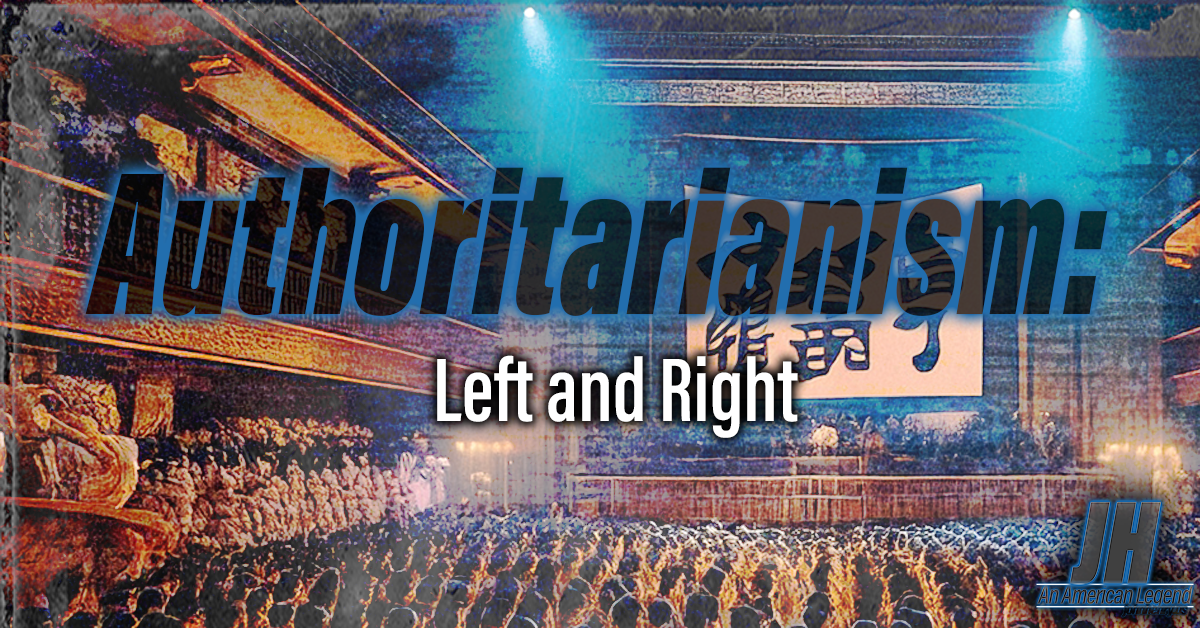
America, we need to talk about this word “libertarian.”
If you live outside the US and are engaged enough to bother having a thought about it, you understand “libertarians” to be broadly defined as “the opposite of authoritarians on one axis of a multi-dimensional political-ideological grid.”
If you live inside the US, the word “libertarian” conjures a pretty specific set of images. What the marketing would like for you to think of is Rugged Individuals™ with Lots Of Large Guns™ living in The Big Open™ free from Government Tyranny™. What you actually should be thinking of is a collapsed ecosystem, maybe survivable by creating dome cities or something, but probably not, at the hands of rapacious and unregulated industrialists. Add to that the economy (for most of us), because the only ethic of business is profit, and without government acting in place of the conscience business doesn’t have to protect the interests of the public, business will destroy this planet all the way to the bank. Has done. Is doing.
Typically in discussions on the subject I’ll create a distinction between classical libertarianism and US-style libertarianism. We’ll examine that distinction, and how to make it when communicating, below. I’d also like to just look at the “brand” as it’s sold here. As a student of language, communication, and propaganda the phenomenon of the Libertarian Party in the United States absolutely fascinates me. Students of political science will be aware that there are many points of nomenclature where the US is significantly out of step with the rest of the world, but in my opinion there is none so glaringly obvious, egregiously contrary, and propagandized as the concept of libertarianism.
Putting Out The Gaslight
As one might expect from an organization whose core philosophy includes lying to people at will, there’s a well-developed series of gaslighting tactics employed by those trying to sell it, so let’s knock a few of those out right at the top and save my comment sections the abuse.
- “Statist.” – Idiot. States are things, they’re always gonna be things, they’re not going away. Next.
- Nanny state/big brother/bootlicker – meh. Barely worth responding to, for me; if that was me I wouldn’t be me. Wouldn’t be writing this article. Next.
- Shill for [x] – yeah, that’s why I have to remind people almost daily that this is how I make my living and I need their support or I’ll be homeless and starve. Because I’m “shilling” for someone, and they pay me so well for it.
- “You don’t get it.” – I’ve been getting it since the Libertarian Party hit me up to run for local office in 1990. When you have been an activist for thirty-five years and earned a minor in political science, you’re qualified to suggest I am missing something…and you’ll need to explain what, in detail, and be prepared to defend your position, ideally with citations and valid reasoning. Until then, it ain’t me that isn’t getting something here. This is an argument on the internet to you. It’s one of my professions – not because I watched a couple of YouTube videos and decided I was a political scientist, but because I put the time in both on the streets and in the classroom. The chances any given random person is qualified to tell me what I don’t get about any of this are very, very low. The chance that person is going to be a self-appointed expert whose entire political philosophy comes from old Ron Paul newsletters recycled fifty or sixty thousand times through internet comment sections? Zero. Sit.
- “Fake two-party system” – It’s not fake, it’s math, and there’s pretty much no way around it. First see Duverger’s Law. I’m going to look at this in depth in a later article; I’ll try to remember to link it here when it’s up.
- “Party loyalist” – I’ve never been registered as anything but independent. I did vote in the Democratic primary in 2020. For Bernie Sanders. I’ve never voted for a Republican that I know of; I have voted for Democrats multiple times, but have never considered myself a party member. My loyalty is not to a party or even a nation, but to the fundamental concepts that ensure the highest quality of life for the living, and thereby ensure the greatest possibility of the survival and propagation of the species, which is the whole point of everything ever.
- Hate freedom, afraid of liberty, etc. – no, just noticed that unless it’s hookers, guns, or drugs, the only freedom the Libertarian Party cares about is the freedom of industrialists to unsustainably exploit natural resources for profit.
- When those natural resources are human the exploitation is also invariably inhumane. This includes both employees and customers, groups which also typically have significant overlap.
That takes care of the broad classes of argument and establishing what the conversation’s about, so let’s move forward shall we?
![JohnHenry.US [BETA]](https://johnhenry.us/wp-content/uploads/2024/02/site-logo-with-tagline-001-400.png)

